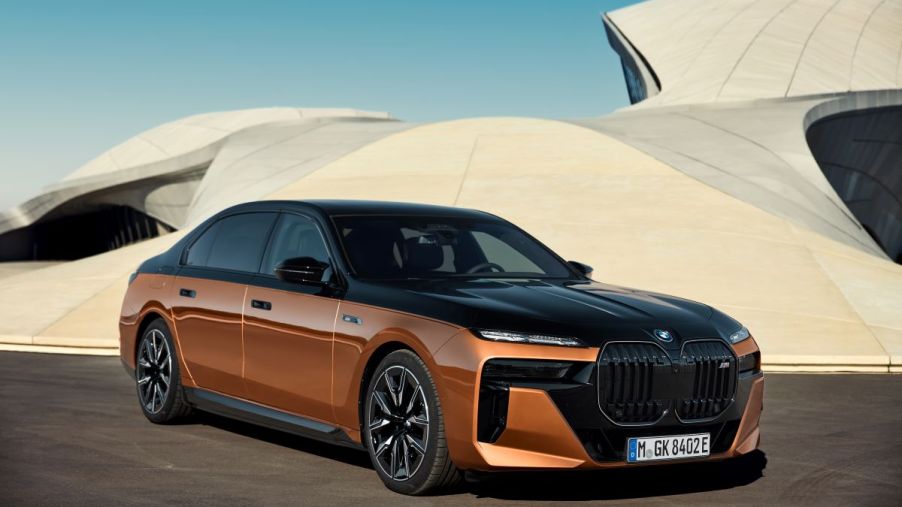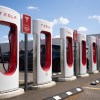
How Many Different Electric Vehicles Does BMW Make?
BMW is one of the biggest manufacturers of luxury cars next to Mercedes-Benz. The automaker got an early start in the electrification race with vehicles like the i3. However, it didn’t make the most of that lead, with other car manufacturers like Tesla and Mercedes-Benz eventually taking over. However, BMW has picked up the pace and now makes four all-electric vehicles. Here is a guide on all four of BMW’s electric cars.
The BMW i3 was the flagship for BMW electric cars
The BMW i3 is the car that started it all for BMW electrification. This car was a game changer as it came when the best EVs in the market were very dull to look at and drive. BMW may not have been going for style awards with the i3, but it proved that this EV was forward-thinking. It had a unique exterior shape, advanced carbon fiber body and chassis, and rear-hinged back doors.
The i3’s full carbon fiber chassis was a huge deal at the time because it was usually reserved for powerhouses like McLaren, and the i3 gave drivers a cheaper alternative. Additionally, it was among the few EVs that offered backup power in the form of a small petrol generator engine which would come in handy for anyone who ran out of battery juice.
It was also one of the few EVs with range extenders. The i3 has a 42.2-kWh battery pack that gives about 140–150 miles of range and takes 45 minutes to charge to 80%. It has a starting MSRP of $44,450 but costs more for one with a range extender.
The iX is based on BMWs’ Vision iNext concept
BMW announced the Vision iNext concept in 2016 as a spearhead of innovation and technology. It took four years for it to be production-ready, with the company adopting the nameplate iX to showcase the car’s position at the top of its I lineup. The BMW iX was released in 2021 as a 2022 model and is the automaker’s first all-electric SUV.
The car is powered by two electric motors, which offer full-time all-wheel drive and generate 516 hp (and 610 hp for the high-performance model). The iX comes in three models, the xDrive40, xDrive50, and the high-performance variant M60.
The xDrive 50 and M60 have a 111.5kwh battery capacity, while the xDrive 40 has a battery capacity of 76.6 kWh. The iX offers 290 miles of range and takes 35 minutes to recharge to 80%. The car has an MSRP of $84,195.
The BMW i4 was unveiled the same year as the iX
The i4 is yet another one of BMW’s best EV offerings. The eDrive40 model is a rear-wheel drive model powered by a single electric motor that generates 335 hp. The M50 has an additional motor that helps it make 536 hp.
Both i4 models have an 80.7-kWh battery pack, but the all-wheel drive (M50) tops at 245 miles of range while the rear driver model (eDrive40) boasts 300 miles of driving range. The car has a 200 kW charging capacity and can recharge to 100% in under 8 hours. If you’re eyeing the BMW i4, expect to pay $56,395.
The BMW i7 is the flagship of luxury BMW electric cars
If you’re a fan of the BMW 7 Series and are looking for an electric version, then you may enjoy the BMW i7. The vehicle is powered by two electric motors that produce a combined 536 hp and a large battery pack (101.7-kWh) that places it next to other high-end electric sedans like the Tesla Model S. BMW currently only offers the xDrive60 model of the i7, but an M Sport model is on its way.
The i7 takes 4.1 seconds to go from 0 to 60 mph, which is brisk for such a large car. The car has an estimated range of 318 miles on a single charge, but with a 10-minute DC fast charge, it can supposedly add 80 miles of driving range. The i7 starts at $120,295.



